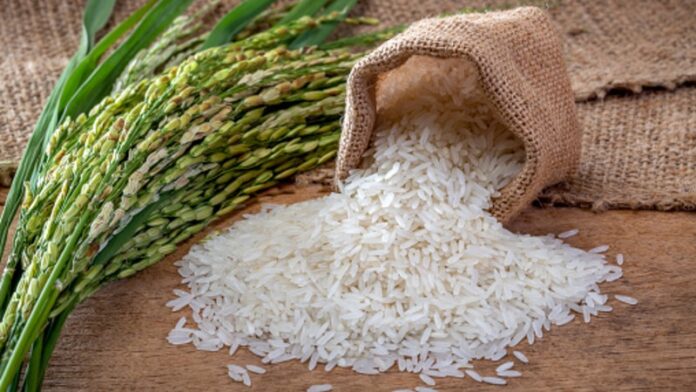India’s decision to maintain the floor price for basmati rice exports is causing concerns about the potential impact on overseas sales and farm incomes. This situation intensifies the competitive landscape with Pakistan in the basmati rice market.
Pakistan and India are the exclusive producers of basmati rice, with India exporting over 4 million metric tons of this premium long-grain rice to various countries.
In August, New Delhi set a Minimum Export Price (MEP) of $1,200 per ton which was initially expected to be revised downwards, but the Indian government recently announced its decision to maintain the current floor price until further notice.
As the world’s largest rice exporter, India has also limited exports of non-basmati rice varieties to control domestic prices, especially in the lead-up to significant state elections.
The fixed MEP has left basmati rice farmers concerned about substantial losses. With the planting of summer-sown rice varieties happen in June and July and harvesting commencing in October, prices tend to decline as the new harvest enters the market.
Farmers, millers, and exporters had hoped for a reduction in the MEP, which they considered to be too steep. A leading exporter from the northern state of Haryana, one of India’s primary grain-producing regions, has called for an immediate reconsideration, suggesting a range of $850-$900 per ton.
This inability to sell their production has led to a challenging situation for basmati rice farmers. Traders report that prices of basmati rice varieties have fallen by over 20 percent since the introduction of the MEP.
Notably, basmati rice is not widely consumed within India, and the government does not acquire this variety for state reserves. This situation has left some within the industry concerned that Pakistan may gain a competitive edge in the basmati rice market.
Meanwhile, the international rice market is experiencing turbulence due to India’s consideration of a ban on non-basmati rice exports. This uncertainty has led to increased demand for Pakistani rice, resulting in higher prices. International buyers are increasingly turning to Pakistan to fulfill their non-basmati rice needs.
Exporters look this as an opportunity for Pakistan to capture essential markets. With the potential decrease in rice supply from India, Pakistani non-basmati rice prices have surged by over 20 percent, or at least $100 per ton. As Pakistan’s fresh crop nears harvest, growers are raising prices due to the uncertain global situation.
They emphasized that with the right government support, Pakistan’s rice exports could potentially increase by $1 billion, boosting the sector’s total export value to around $4 billion.
However, a potential downside of the surge in non-basmati rice exports could be a price hike in the local market. Exporters believe that basmati rice prices might not see the same increase as non-basmati rice because India continues to export its high-quality basmati rice without disruption.




